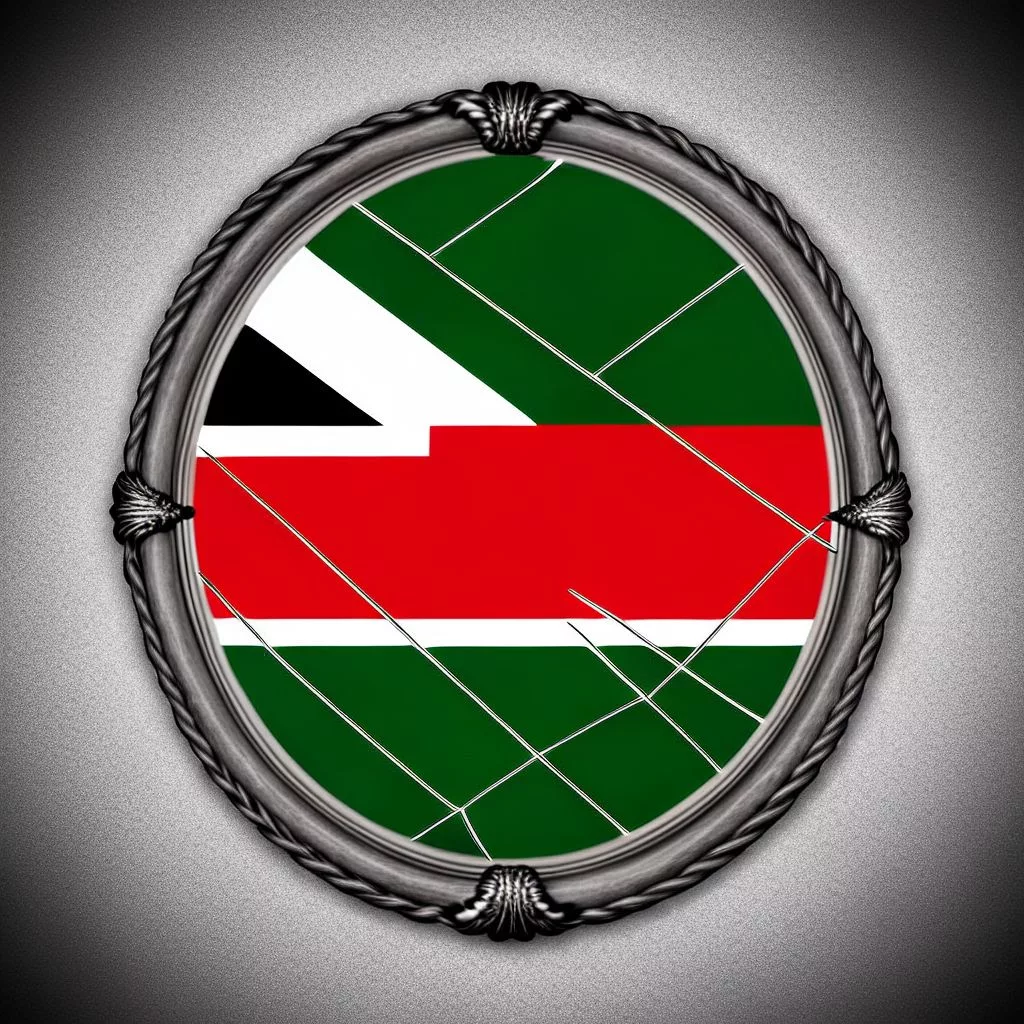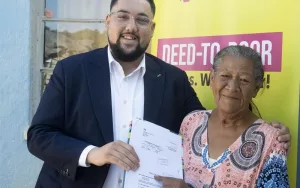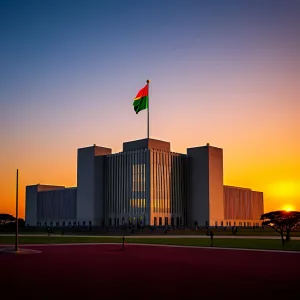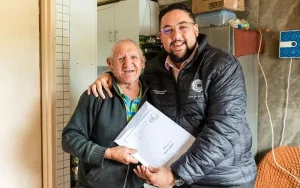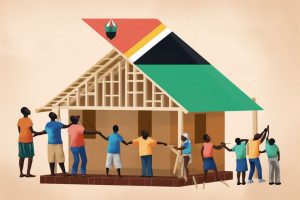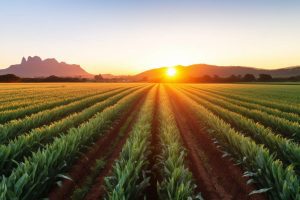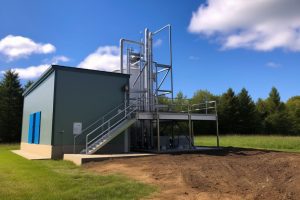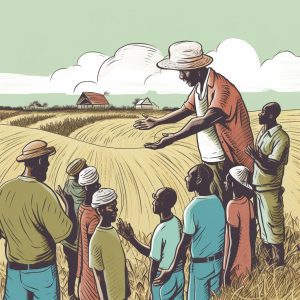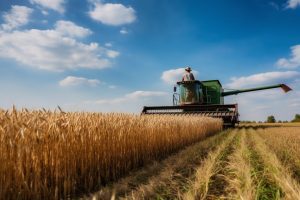South Africa faces big challenges with crime and social conflicts tied deeply to its painful history of apartheid and land struggles. Violent crime hits both cities and farms, making safety a daily worry for many. Outside views sometimes fuel myths, like the idea of “white genocide,” which are not supported by facts but stir emotions worldwide. With poverty, unemployment, and contested land rights adding fuel to the fire, people often turn to private security and technology to protect themselves. Still, amid hardships, South Africans show strong spirit and hope as they work to build a fairer and safer future together.
Cape Town is launching an exciting program called Title DeedtoDoor, aiming to give nearly 10,000 families a piece of land they can truly call their own. This initiative tackles the unfairness of the past, helping people feel secure and allowing them to build a brighter future. Stories from local residents, like Deon Carelse and Mark de Jongh, show how receiving a title deed means more than just ownership; it brings hope and stability to their lives. With strong community support and leaders committed to change, Cape Town is on a path to create a fairer, more equal city for everyone.
Certainly! Here is a fully rephrased, original article with the required structure, depth, and value, incorporating all key facts and meeting the length requirement:
David Mabuza was South Africa’s former Deputy President who brought honesty, calm, and teamwork to Parliament. He worked hard to fix land problems, support rural communities, and make government more open and fair. Known for his humble and caring nature, Mabuza connected people and inspired respect across party lines. His efforts helped build a stronger, more listening Parliament that still guides South Africa today.
In a bold move towards fairness, South Africa is changing how land ownership is documented starting March 5, 2025. New rules will require landowners and buyers to share details about their race, gender, and nationality, shining a light on who owns land in the country. This change aims to fix past wrongs from a time when land ownership was unfairly divided. By collecting this important information, South Africa hopes to create a more equal and just future for everyone. Through these steps, the nation is embracing a brighter path toward true equity in land ownership.
In South Africa, a fierce fight is brewing over the Expropriation Act, which lets the government take private land for public use. Supporters believe it’s a way to fix past wrongs, while critics worry it will hurt property rights and jobs. Groups like AfriForum and Solidarity are taking their concerns to the world, asking countries like the U.S. for support, but the Economic Freedom Fighters (EFF) are pushing back hard, claiming this undermines South Africa’s independence. As the nation grapples with its complex history and seeks fairness for all, the debate over land reform continues to stir emotions and raise important questions about the future.
The Expropriation Act of 2024 is a big step in South Africa’s journey to fix past land injustices. It allows the government to take land for the “public interest,” meaning it can be used to help everyone, not just a few. This law also introduces the idea of paying no money for certain lands that are unused or abandoned, aiming to transform these spaces into thriving communities. While many people support this change, others worry about how it will work in practice. Overall, the Act shines as a hopeful sign for a fairer future in land ownership.
The 2024 Expropriation Act in South Africa is a big step toward fairer land distribution. It allows the government to take land for public good, like building homes or roads, while making sure owners are treated fairly and compensated. This law aims to fix the wrongs of the past without being biased against any group of people. By focusing on underused land, the Act hopes to boost the economy and help all communities thrive. Understanding this law can lead to a brighter, more equal future for everyone in South Africa.
Unleashing Ownership Opportunities: The Revolutionary Influence of Human Settlements Title Deeds Initiative
The Human Settlements title deeds initiative in Cape Town distributed 2,000 title deeds to qualifying beneficiaries between June and July 2024, utilizing a doortodoor methodology that showcased community cooperation. The initiative has redefined the lives of recipients and bears witness to the commitment and determination of personnel and title deed agents. Title deeds are emblems of possession and sovereignty, integral to financial transactions, and the initiative’s success indicates a commitment to enabling residents and unlocking new possibilities. An estimated 12,000 title deeds are still awaiting delivery, and beneficiaries without a title deed are encouraged to interact with title deed agents.
Housing activists in South Africa are urging President Cyril Ramaphosa to utilize the State Land Disposal Act of 1961 to provide public land for human settlement. The activists marched to the President’s official residence in Cape Town, demanding land for the people.
Deputy President Paul Mashatile recently addressed the National Assembly on The Presidency Budget Vote, highlighting the significance of the social and political context in delivering his speech. In this article, we will delve into Mashatile’s vision for South Africa, which includes a focus on social cohesion, land reform, and service delivery.
South Africa has been grappling with the injustices of land dispossession since the 1913 Natives Land Act. Now, 110 years later, the government is making significant strides to reverse historical wrongs and foster an environment of social transformation and harmony.
South Africa’s Department of Agriculture, Land Reform and Rural Development (DALRRD) recently presented its Budget Vote for the 2023/24 financial year. In response to the challenges faced by rural communities due to extreme weather events, the COVID19 pandemic, and an ongoing electricity crisis, the department emphasized several key initiatives aimed at empowering and uplifting these communities. The following sections highlight some of the initiatives described in the budget vote.
Deputy Minister Mcebisi Skwatsha discusses the progress made in land reform and rural development in South Africa since the Restitution of Land Rights Act was enacted in 1994. ## Land Redistribution
Agriculture is a vital sector in the South African economy, contributing to the nation’s employment growth and social stability. The Minister of Agriculture, Land Reform, and Rural Development, Ms. Thoko Didiza MP, has expressed her encouragement regarding the sector’s overall contribution to employment in the country.
The Special Investigating Unit (SIU) has achieved a significant victory with the declaration of the land reform lease agreement with Cultiver Investments as irregular and unlawful by the Special Tribunal. This agreement was ordered by the former Minister of Rural Development and Land Reform, Ms. Maite NkoanaMashabane, who directed the Department of Rural Development and Land Reform to finalize the lease for a chicken farm in Limpopo Province.
South Africa is currently facing a crisis of food price hikes that have caused widespread suffering among poor households. According to StatsSA, food prices have risen by 14% over the past year, resulting in millions of children and adults going hungry. This devastating crisis has prompted DA leader John Steenhuisen to urge President Ramaphosa and his cabinet to take immediate action to alleviate the suffering of the people of South Africa.

